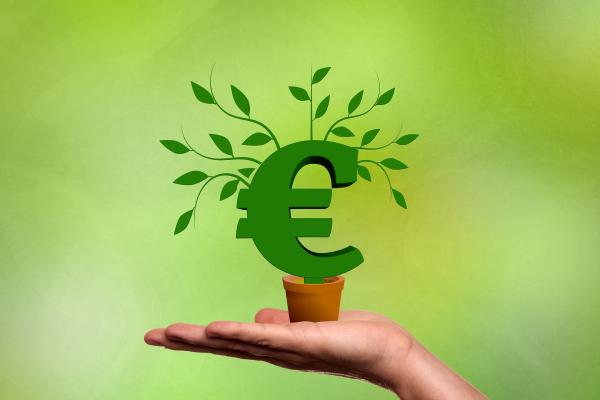
- First joint webinar organised by the two European institutions starts today
- High-level speakers shed light on EU’s recovery measures and COVID-19 crisis implications for energy policies and sustainable finance, among others
The European Investment Bank (EIB) and the European Stability Mechanism (ESM) are hosting today and tomorrow a joint online seminar on capital markets in the midst of the COVID-19 crisis. Aimed at their investor bases, the first day of the program will cover experts’ views on the macroeconomic and structural impact of the current crisis, as well as the role of sustainable finance in the economic recovery and the role of public and private investment in continuing to sustain the transition to a greener and low-carbon economy. The second day will be focused on Europe’s financial resilience highlighting its journey from banking union to capital markets union.
Both institutions are playing a key role in Europe’s response to COVID-19 crisis. Within the EUR 540bn rescue package approved by the European Council in April 2020, the EIB is establishing a European Guarantee Fund that will mobilise up to EUR 200bn, mainly to support SMEs. The ESM has made available a EUR 240bn credit line, Pandemic Crisis Support, for euro area Member States to cover their direct and indirect healthcare costs related to COVID-19.
The EIB brings to the discussion its expertise and role as a large multicurrency borrower. To date, the EU bank has already raised EUR 51.4bn, or 85% of the total program announced for this year. The EIB is also the largest multilateral institution lending to climate change projects. In 2019, it devoted 31% of its lending to climate-related projects. It has committed to raise its lending target to climate action and environmental sustainability projects to 50% by 2025 and to align all its lending activity with the Paris Agreement by the end of this year.
The ESM has extensive expertise in raising funds to help crisis-hit countries. Although financial assistance programmes have now completed, with Greece successfully concluding its three-year ESM financial assistance programme in August 2018, the ESM and its sister institution, the European Financial Stability Facility (EFSF), remain active borrowers in capital markets to roll over bond issues as part of loan management. The ESM currently has remaining lending capacity of EUR 410bn for future crises, of which up to EUR 240bn is available for combating COVID-19.
Werner Hoyer, EIB President: “Both institutions – EIB and ESM – are financed in the capital markets, face similar challenges and opportunities, and bring an EU lens to market developments. Both institutions have been called on as part of the European institutional reaction to the pandemic. The EIB as the EU Bank has developed a rapid, timely and concerted response, both inside and outside EU. It is crucial that citizens see solidarity in the different reforms and response packages. In this context, the role of Sustainable finance and Energy Transition are essential for a green and socially just recovery.”
Klaus Regling, ESM Managing Director: “The ESM is pleased to be a co-organiser of this event. We consider it important to be part of this event: it gives central bankers and international private investors a platform to meet with European institutions that are significant bond issuers. The ESM and the EIB have also been at the forefront of Europe’s concerted response to the COVID-19 pandemic. Together with the European Commission, our three institutions take charge of a EUR 540bn package of measures to complement national efforts in the fight against the effects of coronavirus.”
Key data and recent EIB issuances:
- The EIB has issued EUR 6.5bn in Climate and Sustainability Awareness bonds (CABs and SABs) since the beginning of the year.
- On 18 June 2020, the same day of the approval of the EU Sustainability Taxonomy Regulation by the European Parliament, the EIB issued a EUR 1bn CAB bond due 2035, announcing CAB extended eligibility criteria within climate change mitigation objective. Link here.
- Since the outbreak of the pandemic, the EIB has issued EUR 2.4 bn equivalent in SABs, contributing to environmental- and social sustainability objectives in line with evolving EU sustainable finance legislation and contributing to the United Nations’ sustainability development goals, including Universal Access to Affordable Health Services (SDG 3). SAB-eligibilities are being extended to other financing areas directly related to fight against COVID-19 pandemic.
Key data and recent ESM issuances:
- ESM/EFSF have a total of €300 bn in the market. ESM has issued EUR 6.5bn in long-term funding so far in 2020, which provides for roll over of maturing bonds as part of the long-term loans made to euro area Member States. Additionally, the EFSF has issued EUR 9.5bn in long-term funding so far in 2020.
- ESM introduced 12-month maturity bills in April to augment its existing 3- and 6-month bills and help build the yield curve at the short end. ESM is the most capitalised IFI, with EUR 80bn paid in capital, which is not on lend and invested in markets and with central banks.
- Since 15 May 2020, the ESM provides a credit line, Pandemic Crisis Support, to help euro area Member States cover healthcare costs related to COVID-19.
- In June 2020, the ESM published its Social Bond Framework. This allows the ESM the option to issue Social Bonds in response to applications for Pandemic Crisis Support.
Background information
About ESM
The mission of the European Stability Mechanism (ESM) and its predecessor European Financial Stability Facility (EFSF) is to safeguard financial stability in the euro area by providing financial assistance to euro area countries experiencing or threatened by severe financing problems.
About the EIB&ESM Capital Markets Seminar
- If you are a current or potential investor and wish to participate in the conference, please contact investor.relations@eib.org
- See detailed program here